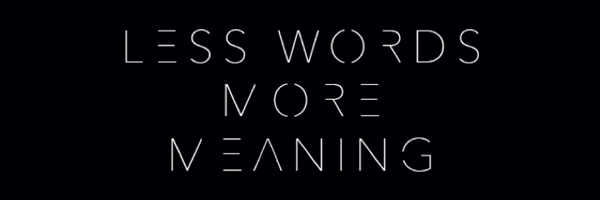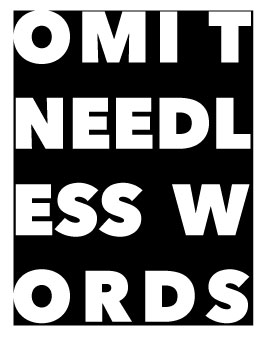Embracing simplicity: How writing less is more
 14 September, 2019
14 September, 2019

People’s attention spans are very short. The computer age maybe at fault, but this has always been the case since the caveman days. Imagine cave drawings with a bunch of words. Would they have had the same impact today? The purpose of writing is to deliver a clear message, so your reader knows what you’re trying to communicate. How do you embrace simplistic writing? Here’s how:
Visuals
Why say something when you can show something? The term “a picture is worth a thousand words” is self-explanatory. Try and use visuals to help illustrate your message. 90% of information transmitted to the brain is visual, and 40% of the people will respond better to visual information than plain text.
Stick to the point
Focus on your message and write what is required. It helps you stay relevant to your topic. Rambling on or being redundant can be a problem.
Words are expensive and precious

Don’t waste your readers time. The more words you use, the more it undermines your message. People just won’t read it and will go onto the next thing. Sometimes the words you omit is the difference from someone reading your writing or not.
Choosing your words
Use common words and not S.A.T, dictionary type of words. There is no need to show off with grandiose words. Does grandiose count as a big word? Oops. How about there is no need to show off with big words. Technical jargon is also not a good idea. If your writing about a technical subject educate your readers.
Audience
Know your target audience and adjust your communication accordingly. The previous point (choosing your words) can be modified if your audience is an educated one or well versed on the subject you’re writing about.
Edit yourself relentlessly
Step away and then come back to it fresh. Remove anything that does not pertain to your message. Ask yourself, is this word or sentence necessary?
Professional writing Vs. Business everyday writing
Whether you’re a real writer or someone trying to write an email, memo, project plan, or meeting notes. There is always someone on the other side attempting to read it. Regardless of what kind of writer you are everything stated in this article is good practice.
Writing Tip
Have you heard of Grammarly? It’s a free online grammar checking, spell checking, and plagiarism detection platform. I highly recommend it for any communications.
